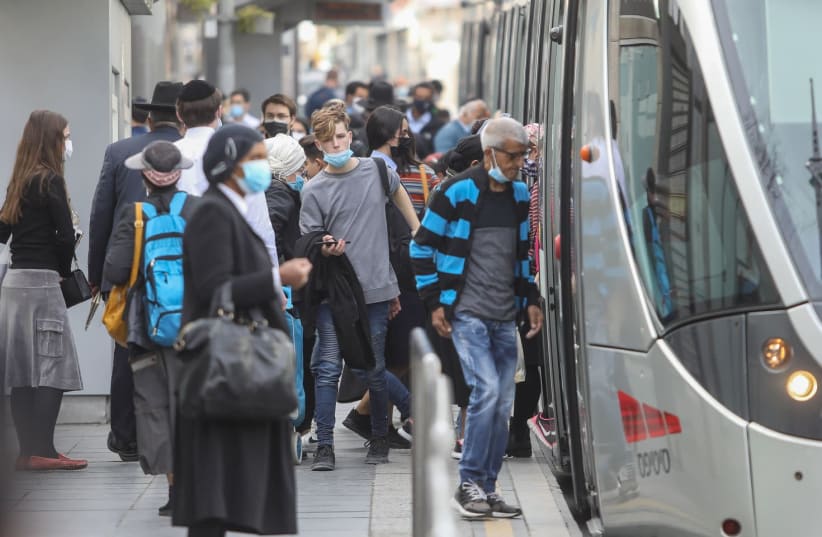Attempts to deal with the challenges of the coronavirus pandemic during Purim this year led to an absurd situation.
The holiday started on Thursday evening and, due to Shabbat and the fact that Purim is observed in Jerusalem the day after other places, some of the religious requirements and customs, including the celebratory feast, were postponed to Sunday in the capital.
Last-minute government regulations aimed at preventing large gatherings – particularly by the ultra-Orthodox in Jerusalem – led to a temporary nighttime curfew from Thursday night to Saturday night and the halt of public transport and all organized transport into the capital on Sunday.
Good intentions, as we all know, do not necessary lead to a good place.
The Friday night curfew, for example, meant that families – even those where all members over 16 are fully vaccinated – were not allowed to gather for a Shabbat eve meal, even if just the week before this same group of people was permitted to meet up.
The banning of public transport to one city alone on Sunday served as a collective punishment and led to a situation in which soldiers could not return home from base to visit their families, and people had to cancel medical appointments.It was also socially discriminatory, allowing those with private vehicles to travel (albeit with traffic jams and police checks), while those who do not own cars or do not have a license or money to rent a car were prevented from entering the capital.
This would have been a questionable situation in itself, but what happened during the day on Friday and Saturday turned it into a farce. Media reports showed that street parties of mainly young secular Israelis took place at various sites throughout the country.In Tel Aviv alone, thousands – disregarding rules of social distancing – gathered in several central sites, including Habima Square, Rothschild Boulevard, the Carmel Market, Sheinkin Street, Tel Aviv Port, Dizengoff and the Jaffa Flea Market. Most of the revelers were drinking and mask-less.
As one man at the Carmel Market told Maariv, “What’s the difference between crowded demonstrations and crowded street parties? Young people are no longer scared, and there appears to be a breakdown of trust.”
Police did not attempt to break up many of the street parties, apparently fearing that using crowd dispersal methods against such large numbers in relatively small, closed spaces could lead to serious injuries, similar to the way they have shied away from trying to break up previous mass haredi violations.Compounding the absurdity was the manner in which police did hand out fines to families enjoying the sunny weather strolling near the beaches.
In addition to those affected by the weekend’s selective Purim curfew, the plight of Israelis stranded abroad as the country’s airports and borders remain closed also needs addressing.
We do not condone the recklessness of those who organized and participated in mass gatherings, but we agree that there is a breakdown in trust. Health Ministry officials voiced fears that the thousands of revelers could lead to a new surge in the virus and threaten the gradual exit from the COVID restrictions which were planned to be lifted in time for Passover.
The general public understands the dangers of the disease but not the measures taken to tackle it. How can shopping centers, swimming pools and gyms be open, but junior high school students still be stuck on Zoom?How can thousands of Israelis who need to come home to Israel – some from places where they have outstayed their visas – be stranded and reliant on one flight of 200 people a day, when they see international athletes arriving to take part in sporting events in Israel?
Some are claiming the haredim are receiving preferential treatment when it comes to flights home; on the other hand, stopping transport to the capital was perceived as an extraordinary measure aimed at the ultra-Orthodox.
There should be more clarity and transparency. Regulations should not appear to be benefiting or discriminating against different sectors – especially ahead of another round of elections. This does nothing to help foster social solidarity.
